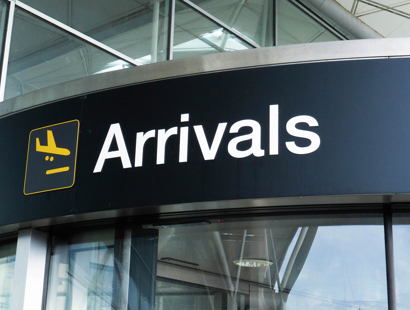
The Government has succeeded in its plan to reduce spending on legal aid—but at what cost?
Partner Sarah Richardson highlights the release of a National Audit Office (NAO) report, shedding light on the Government's management of legal aid.
Today, the NAO published a report on the Government’s management of legal aid. The report identifies a fundamental gap in understanding between the Ministry of Justice (MoJ), which sets the rate of spending on legal aid, and the practitioners who carry out publicly funded work day-in day-out for the people who need it most.
NAO findings
The NAO found that spending on legal aid has fallen significantly in the last decade. There has been a reduction in spending–in real terms–of £728 million in the last 10 years. Unsurprisingly, this has severely impacted access to justice for many people, including society’s most vulnerable.
The NAO identified a significant increase in the number of people representing themselves in court proceedings: between January and March 2023 in 40% of family dispute cases neither party had legal representation. Over the same period 10 years earlier, this happened in only 14% of cases.
Legal aid has also reduced significantly for those seeking advice for immigration, housing or debt issues. The last increase in civil legal aid rates was in 1996, some 28 years ago. In fact, the rates have been reduced since then which has led to a real-term reduction in fees
This has led to many law firms being unable to offer legal aid work – or having to severely limit their offering of it – as it is simply not financially viable. This leads to real questions over access to justice. Worryingly, the NAO found that the MoJ doesn’t collect sufficient data to understand whether those who are entitled to legal aid are able to access it. Between 2012-2013 and 2022-2023 there has been a reduction by 40% of offices offering civil legal aid.
-
£728m
The reduction in legal aid spending in the last ten years -
40%
Of family dispute cases where neither party had legal representation (Jan-Mar 2023) -
1996
The last increase in civil legal aid rates -
40%
Reduction in the offices offering legal aid between 2012-2013 and 2022-2023
“Legal aid and access to justice is in crisis in England and Wales—this is my daily experience in the family courts. Those in our communities who are often the most vulnerable are left on their own trying to navigate a system which is at breaking point. The report by the NAO has identified what those of us on the front line in legal aid practice have understood and tried to manage for many years. There are many more litigants in person who cannot find representation. The huge reduction in the number of lawyers taking on legal aid cases has meant greater pressure on the courts, judges and the public sector. This report is a starting point but now we need action to be taken to ensure we have access to justice for all, which many think is a given in England and Wales, but it is not.”
The effects of legal aid cuts
The impact of these cuts is far-reaching and near impossible to measure. An increase in litigants in person moving through family courts, without the benefit of early advice, contributes to an ever-building backlog of cases that are not dealt with swiftly and effectively. This can lead to years of litigation resulting in complete family breakdown.
The limiting of legal aid to certain areas of law has diminished the availability of legal aid practitioners and continues to discourage young lawyers from entering into a legal aid practice. When people cannot access legal advice, they turn to charities and organisations such as Citizens Advice which are buckling under the demand for help with issues such as immigration, housing and debt.
By squeezing legal aid, the public sector is placed under additional pressure and inequalities grow ever wider. It is true to say that the Government has succeeded in its overall aim ‘to significantly reduce spending on legal aid’—but at what cost?
Sarah Richardson is a partner in the family and children team, specialising in complex cases involving vulnerable adults and children during care proceedings and family disputes such as children spending time with and/or living with one family member.
Get in touch
If you would like to speak with a member of the team you can contact our children law solicitors by email, by telephone on +44 (0)20 3826 7528 or complete our enquiry form.




